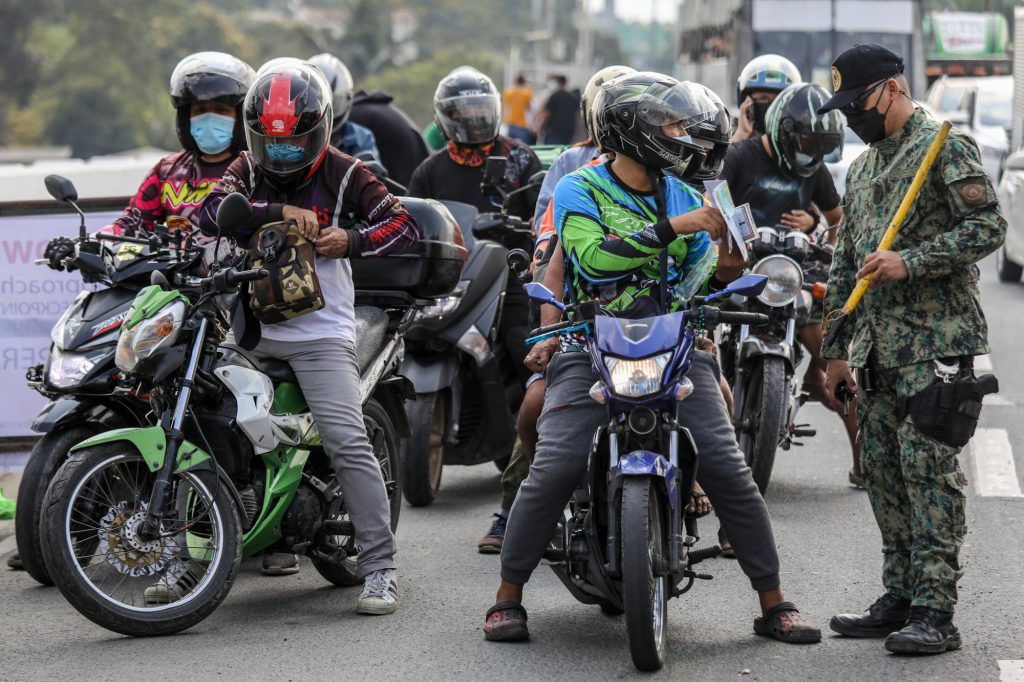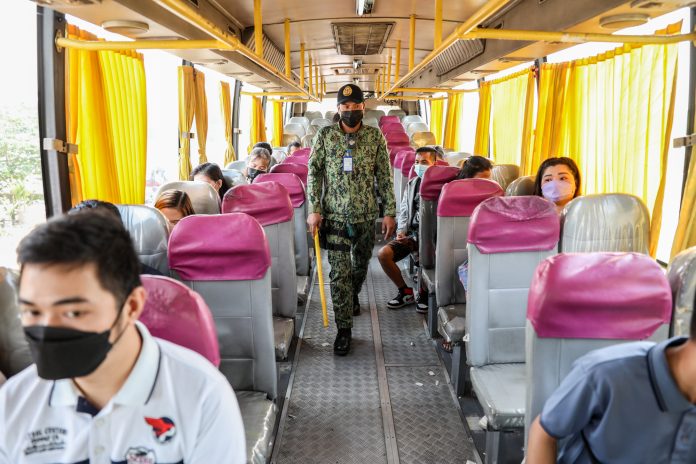Christian youth activists and human rights groups denounced what they described as the “discriminatory policy” of the Philippine government against unvaccinated individuals amid the pandemic.
On January 11, the country’s Department of Transportation issued an order implementing a policy limiting public transportation access to vaccinated individuals only.
The order came after President Rodrigo Duterte last week threatened to restrain unvaccinated individuals who go out of their homes.
In November 2021, the government’s Inter-Agency Task Force Against COVID-19 sought a “no vaccine, no work” policy.
“The Duterte administration proves itself as anti-people again and again with its discriminatory policies against the unvaxed,” said Kej Andres, spokesperson of the Student Christian Movement of the Philippines.
“The government cannot even give enough aid and medical solutions to the poor and needy; now, they are trying to deny public transportation and livelihood especially to the masses who need it the most,” he said.
Human rights organization Amnesty International also slammed the policy.
“The way out of this pandemic is not to impose unacceptably disproportionate restrictions and punishment on those who are unvaccinated,” said Butch Olano of Amnesty International Philippines.
He warned that the rule would unfairly target the poor who cannot work from home and “further erode trust in the government.”
The country’s Commission on Human Rights said earlier the travel restrictions “effectively restricts the exercise and enjoyment of fundamental rights.”
“The people cannot bear an unscientific and uncaring government that denies mass testing and intensified vaccine rollout,” said Andres in a statement sent to LiCAS.news.
“We are forced to live miserably under a government that all has the resources yet puts the prime burden upon individuals,” he added.
“We are well aware how such quarantine ‘violations’ have resulted among illegal arrests, other abuses, and even deaths,” said the youth activist.

Representative France Castro of the Teachers’ party in Congress also slammed the “no vax, no ride” policy, saying that public transport is a public utility and should not be denied to anyone who needs access to it.
“This policy is simply absurd, unconstitutional, anti-poor and discriminatory,” said Castro.
She said that instead of barring unvaccinated people from using public transport, “why won’t the [Transportation department] instead provide free rides to vaccination sites and help the government educate people and curb vaccine hesitancy?”
The government, however, defended the controversial ban in the national capital.
The Department of Transportation said the temporary “no vaccination, no ride” policy was designed to protect everyone and avoid an economically damaging shutdown of the public transport system during the latest spike of COVID-19 cases.
“We believe that it is more anti-poor and anti-life if we will not impose interventions that will prevent loss of life due to non-vaccinations,” it said.
The rule is expected to take effect on Monday.
Passengers will have to show proof of vaccination before boarding public buses, jeepneys, trains, boats or planes in Metro Manila where infections are soaring, causing widespread disruption for businesses and straining hospitals.
Exceptions will be made for unvaccinated people who have official permission to travel to buy food, seek medical treatment or get jabbed.
Only around half the Philippine population are fully vaccinated, though the rate in the capital is much higher.
The government loosened lockdowns in October last year, after coronavirus infections driven by the Delta variant peaked, in order to revive the battered economy.
New infections dwindled to a few hundred daily just before Christmas, but ramped up again as families and friends got together for the holidays. – with a report from Agence France Presse









